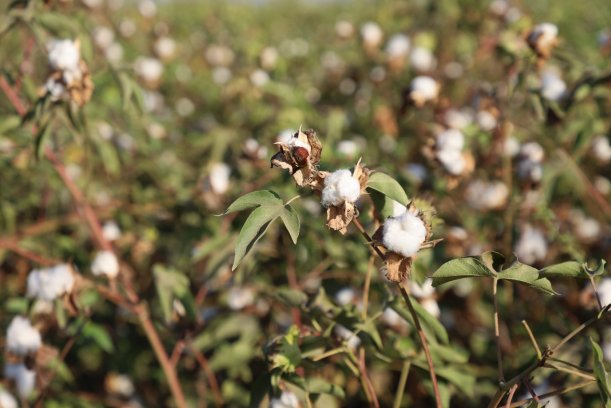
Ventile backs farmers in Egypt
Two project farms have produced 47,728 kg of high-quality organic cotton harvested this season.

6th January 2025
Innovation in Textiles
|
Egypt
High-end woven fabric manufacturer Ventile has issued a progress update on its ongoing efforts to promote biodynamic farming in Egypt, following the second year of its joint venture with the Egyptian Biodynamic Association (EBDA).
Ramadan Kamel Farm in Behira and Salsol Farm in Dommiat have both taken further steps in the process of converting to biodynamic farming, reporting 47,728 kg of high-quality organic cotton harvested this season. The farms have also registered improved soil health and increased biodiversity in their production.
With the support of Ventile funding, one-to-one education sessions from EBDA and both fertilization and biological control training, the Ramadan Kamel farm was able to cultivate a crop of Giza 86 cotton. The Salsol Farm meanwhile transitioned from its wheat, beetroot and alfalfa harvests to a new cultivation plan that included Giza 92 cotton and rice – with 20 feddens of the farmland now benefiting from rejuvenated soil.
Looking ahead, both farms will focus on biological control strategies, plant disease management, and additional fertilization training designed to maintain the ecological balance whilst ensuring sustainable growth.
“At Ventile we are constantly researching more sustainable ways of producing our fabrics – from fibres to finishing,” said Ventile brand director Daniel Odermatt. “When EBDA reached out to us we were impressed by the amazing work they do in Egypt and in early 2023 we combined our efforts to support the two farms as they transition from conventional cotton growing into biodynamic methods. Now, we are starting to see the results of that work – with reports showing that the long-term productivity and quality of cotton from the farms is expected to increase significantly.”
“Thanks to Ventile’s ongoing support, each farmer has been allocated its own EBDA engineer, and together, the land has been cultivated to improve soil health,” added Justus Harm, co-executive director of the EBDA. “We have already seen an enhancement in soil organic matter, microbial activity and overall soil fertility and the farms have collectively generated 380.83 carbon credits and produced 390 tons of verified compost.”

Business intelligence for the fibre, textiles and apparel industries: technologies, innovations, markets, investments, trade policy, sourcing, strategy...
Find out more